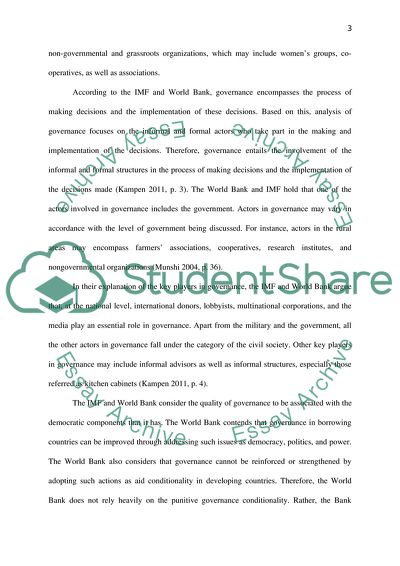Cite this document
(The Concepts Governance, Good Governance, and Good Enough Governance Term Paper, n.d.)
The Concepts Governance, Good Governance, and Good Enough Governance Term Paper. Retrieved from https://studentshare.org/politics/1778123-development-studies-describe-and-evaluate-the-concepts-governance-good-governance-and-good-enough-governance
The Concepts Governance, Good Governance, and Good Enough Governance Term Paper. Retrieved from https://studentshare.org/politics/1778123-development-studies-describe-and-evaluate-the-concepts-governance-good-governance-and-good-enough-governance
(The Concepts Governance, Good Governance, and Good Enough Governance Term Paper)
The Concepts Governance, Good Governance, and Good Enough Governance Term Paper. https://studentshare.org/politics/1778123-development-studies-describe-and-evaluate-the-concepts-governance-good-governance-and-good-enough-governance.
The Concepts Governance, Good Governance, and Good Enough Governance Term Paper. https://studentshare.org/politics/1778123-development-studies-describe-and-evaluate-the-concepts-governance-good-governance-and-good-enough-governance.
“The Concepts Governance, Good Governance, and Good Enough Governance Term Paper”. https://studentshare.org/politics/1778123-development-studies-describe-and-evaluate-the-concepts-governance-good-governance-and-good-enough-governance.


